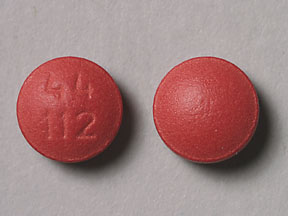
Sudafed Sinus Congestion Coupons & Savings Card – Discount Prices from $10.12
Brand for: Pseudoephedrine hcl
My prescription
Edit
30MG, Pseudoephedrine Hcl (24 Tablets)
Select pharmacy

Walgreens
$10.12
COUPON PRICE
Albertsons
$16.54
COUPON PRICESudafed Sinus Congestion savings card
Show this card to your pharmacist
Walgreens
$10.12
BIN
ID
PCN
GRP
019876
LH9C858B6A
CHIPPO
LHX
Powered by
More prescriptions for nasal congestion
More prescriptions for nasal congestion
Price history for Sudafed Sinus Congestion (brand) & Pseudoephedrine Hcl (generic)
24 Tablets, 30MG
Average retail price for Sudafed Sinus Congestion
Average retail price for Pseudoephedrine Hcl
Average SaveHealth price for Pseudoephedrine Hcl
Our price history data is based on aggregated prescription data collected from participating pharmacies in America. Our prescription data updates daily to reflect the latest price changes. If you notice a missing data point, it means there wasn't sufficient data available to generate a monetary value for that date.
Over the last 12 months, the average discount price of Sudafed Sinus Congestion is $5.15 using the SaveHealth savings card. That's an average savings of 40.39% on Sudafed Sinus Congestion with our discount card.
*Retail prices are based on pharmacy claims data, and may not be accurate when we don't have enough claims.
Sudafed Sinus Congestion (Pseudoephedrine Hcl) dosage forms
Dosage Quantity Price from Per unit 30MG 24 Tablets $10.12 $0.42 30MG 15 Tablets $9.70 $0.65 30MG 20 Tablets $9.93 $0.50 30MG 30 Tablets $10.40 $0.35 30MG 100 Tablets $13.65 $0.14 30MG 12000 Tablets $576.00 $0.05
| Dosage | Quantity | Price from | Per unit |
|---|---|---|---|
| 30MG | 24 Tablets | $10.12 | $0.42 |
| 30MG | 15 Tablets | $9.70 | $0.65 |
| 30MG | 20 Tablets | $9.93 | $0.50 |
| 30MG | 30 Tablets | $10.40 | $0.35 |
| 30MG | 100 Tablets | $13.65 | $0.14 |
| 30MG | 12000 Tablets | $576.00 | $0.05 |
Is Sudafed good for sinus congestion?
Sudafed, which contains the active ingredient pseudoephedrine, is commonly used to relieve sinus congestion. It works as a decongestant by narrowing the blood vessels in the nasal passages, which helps reduce swelling and congestion. However, it is important to use it as directed and consult with a healthcare professional if there are any concerns or if the individual has any underlying health conditions.
Why do doctors tell you not to take Sudafed?
Doctors may advise against taking Sudafed (pseudoephedrine) for several reasons. It can raise blood pressure and heart rate, so it may not be suitable for individuals with hypertension or heart conditions. It can also cause insomnia, nervousness, or dizziness. Additionally, Sudafed can interact with certain medications, such as monoamine oxidase inhibitors (MAOIs), and may not be recommended for individuals with certain medical conditions like hyperthyroidism or diabetes. It's important to consult with a healthcare provider to determine if Sudafed is safe for an individual's specific health situation.
Which one is better, Sudafed or Mucinex?
The choice between Sudafed and Mucinex depends on the symptoms being treated. Sudafed is typically used to relieve nasal congestion by shrinking blood vessels in the nasal passages. Mucinex, on the other hand, is used to thin and loosen mucus in the airways, making it easier to cough up. If nasal congestion is the primary issue, Sudafed may be more appropriate. If the goal is to relieve chest congestion and facilitate mucus clearance, Mucinex might be the better option. It is advisable to consult with a healthcare provider to determine the most suitable medication based on individual symptoms and health conditions.
Why don't they sell Sudafed anymore?
Sudafed is still available for purchase, but its sale is regulated due to its active ingredient, pseudoephedrine. Pseudoephedrine can be used in the illegal production of methamphetamine, so its sale is restricted. In many places, Sudafed is kept behind the pharmacy counter, and customers may need to show identification and sign a logbook to purchase it.
Is Mucinex or Sudafed better for sinuses?
Mucinex and Sudafed serve different purposes, so the choice depends on the symptoms. Mucinex (guaifenesin) is an expectorant that helps thin and loosen mucus in the airways, making it easier to cough up. It is more suitable if the primary issue is chest congestion with thick mucus. Sudafed (pseudoephedrine) is a decongestant that reduces nasal congestion by shrinking blood vessels in the nasal passages. It is more effective for relieving sinus pressure and nasal congestion. Consulting a healthcare provider can help determine the most appropriate option based on individual symptoms.
